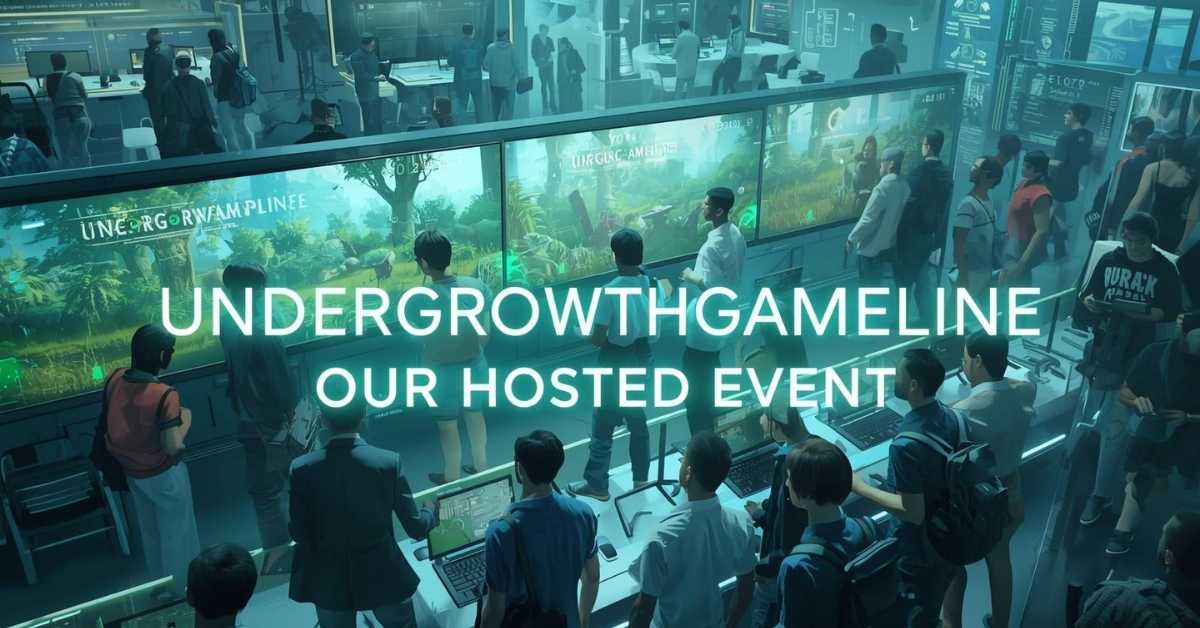Scrambling to build a backend for your limited-time game event? Between server stress, player sync issues, and last-minute bugs, live ops can be a nightmare. This guide is your solution. We’ll show you how to use Undergrowthgameline Our Hosted Event to deploy engaging, stable game events faster than ever.
What a Fully Managed Event System Solves
Building a LiveOps backend in-house means one thing: distraction. Your engineers spend time on server scaling, load balancing, and infrastructure monitoring instead of crafting gameplay. This operational overhead slows you down and introduces risk right when you need to be most agile.
Undergrowthgameline Our Hosted Event is a fully managed platform that acts as your entire event backend. You define the logic; we handle the execution. It’s the difference between building a factory and simply pressing a button to get a product.
The Hidden Costs of DIY Live Event Backends
- Developer Burnout: Constant firefighting during crucial events.
- Cloud Bill Surprises: Unpredictable costs from auto-scaling servers.
- Missed Opportunities: The inability to quickly capitalize on player trends because your tech stack is too rigid.
From Concept to Live in a Single Dashboard
The hosted event dashboard is your command center. Here, you can configure event triggers, set rewards, define schedules, and monitor player participation in real-time—all without touching a line of backend code.
Launch Your First Event in Four Simple Steps
Let’s walk through launching a “Weekend Double XP” event. This is a core use case for any game developer looking to boost engagement.
Step 1: Define Event Rules Without Code
Navigate to the “Our Hosted Event” section and create a new event. The form uses natural language, not JSON or YAML.
- Event Name: Weekend_Double_XP
- Event Type: Multiplicative Bonus
- Target Resource: player.experience
- Multiplier: 2
- Schedule: Set your start and end times.
This configuration alone defines the core game logic. The platform translates this into a live, scalable service.
Step 2: Integrate the Lightweight Client SDK
Next, integrate the SDK into your game client. The following code snippet shows a clean implementation to check for active events.
// C# Example using the Undergrowth Gameline SDK
using Undergrowth.Gameline.Events;
public class ExperienceManager {
public int CalculateFinalXP(int baseXP) {
// Check for an active multiplicative bonus event
var activeEvent = EventClient.GetActiveEvent(“Multiplicative Bonus”);
if (activeEvent != null) {
return baseXP * activeEvent.GetMultiplier();
}
return baseXP;
}
}
This integration is simple, safe, and handles event states automatically.
Step 3: Activate and Monitor in Real-Time
With your code in place, return to the dashboard and click “Activate Event.” Your event is now live. The platform provides a live analytics dashboard to track key metrics.
- Player Participation: See how many players are engaging.
- Resource Distribution: Track the total bonus XP awarded.
- Platform Health: Monitor latency and uptime.
Building Complex, Dynamic Player Experiences
Once you’ve mastered simple bonuses, you can build intricate player engagement systems that feel alive and responsive.
Creating Global Community Challenges
Use the rule engine to create events that unite your player base. For example: “Once the community collectively defeats 1 million enemies, a special boss raid unlocks for everyone for 48 hours.” This fosters a powerful sense of shared purpose.
Implementing Personalized Player Quests
Move beyond one-size-fits-all. The system can deliver dynamic challenges based on individual player behavior, like “Complete 3 matches with your favorite character for a bonus.” This level of personalization dramatically increases retention.
Slash Your LiveOps Overhead Starting Today
Adopting a managed service for your live game operations isn’t just a technical choice; it’s a strategic one. It frees your team to focus on creativity and player satisfaction, turning LiveOps from a cost center into a growth engine.
Your LiveOps Checklist for the Next 30 Days
- Week 1: Sign up for the Undergrowth Gameline developer tier.
- Week 2: Launch a test “Double XP” event in your staging environment.
- Week 3: Design one complex event using the Rule Builder.
- Week 4: Plan your first live player-choice event.
Conclusion
Undergrowthgameline Our Hosted Event provides the definitive solution for developers tired of the infrastructure grind. By handling the backend complexity, it empowers you to ship content faster, experiment more freely, and connect with your players on a deeper level. Stop building backend servers and start building memorable player experiences.
FAQ’s
How does this compare to building my own system on AWS or Azure?
While you can build a similar system using cloud primitives, it requires months of development and ongoing maintenance for serverless functions, databases, and monitoring tools. Our hosted event system gives you a production-ready platform in minutes, not months.
Is there a performance or latency penalty?
No. The platform is built on a globally distributed edge network, meaning event logic is processed closer to your players than a single central server might be, often resulting in lower latency.
Can I run multiple events simultaneously?
Absolutely. The system is designed for concurrency. You can run overlapping events, and the SDK provides methods to check for multiple active event types at once.
What happens if the Undergrowth Gameline service goes down?
Our service boasts a 99.9% uptime SLA. In the unlikely event of an issue, our system is designed to fail gracefully, meaning active events would simply become inactive, preventing negative player impact rather than causing errors.
Continue your learning journey. Explore more helpful tech guides and productivity tips on my site Techynators.com.

Hi, I’m James Anderson, a tech writer with 5 years of experience in technology content. I’m passionate about sharing insightful stories about groundbreaking innovations, tech trends, and remarkable advancements. Through Techynators.com, I bring you in-depth, well-researched, and engaging articles that keep you both informed and excited about the evolving world of technology. Let’s explore the future of tech together!








